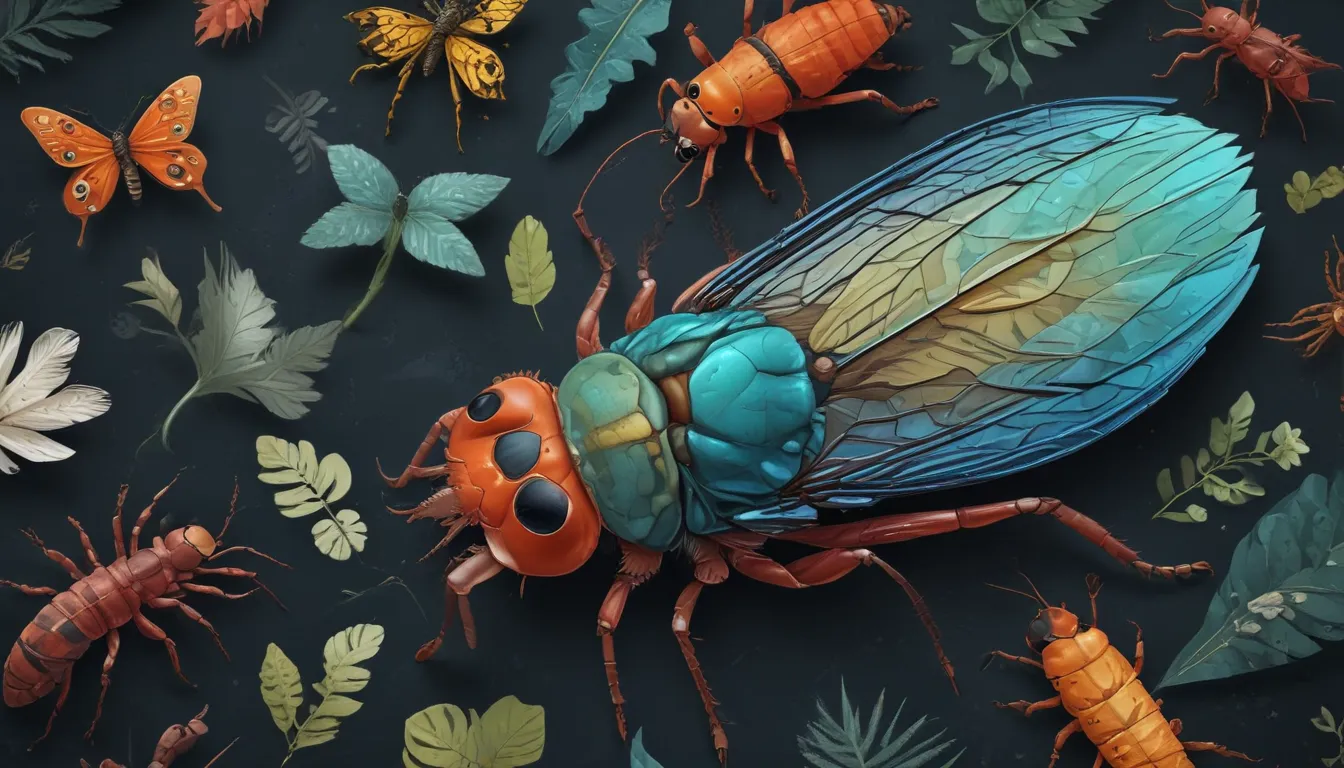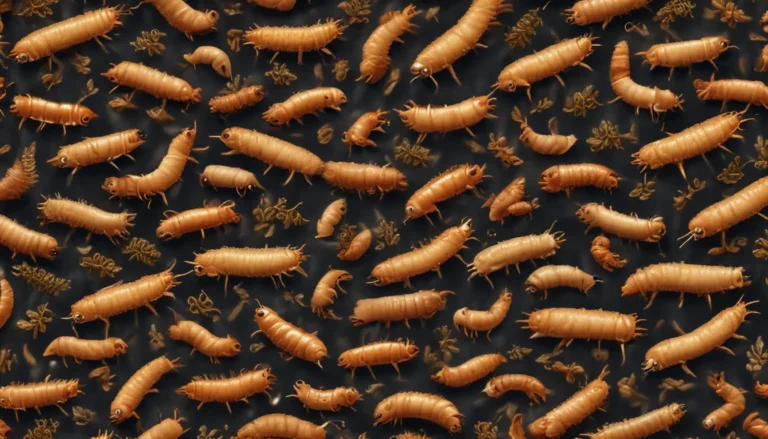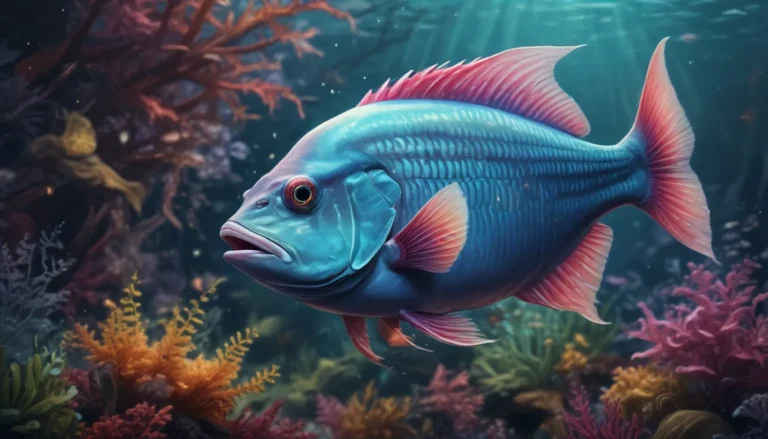The pictures we use in our articles might not show exactly what the words say. We choose these pictures to make you interested in reading more. The pictures work together with the words but don’t take their place. The words still tell you the important facts.
Welcome to the captivating world of arthropods, the largest phylum in the animal kingdom. From insects to spiders, crustaceans, and millipedes, these incredible creatures inhabit a diverse range of habitats around the world. With their jointed limbs, exoskeletons, and remarkable adaptations, arthropods have fascinated scientists and nature enthusiasts alike. Join us as we uncover 20 intriguing facts about arthropods, shedding light on their astonishing diversity, behaviors, and ecological importance. Whether you have a passion for entomology, marine biology, or simply want to delve into the wonders of the natural world, these facts are sure to inspire and amaze you. Let's embark on a journey to explore the secrets of arthropods and discover the marvels of our planet's biodiversity!
Unveiling the World of Arthropods
- Arthropods reign as the largest phylum in the animal kingdom, with over one million known species that showcase remarkable diversity.
- Their exoskeleton, composed of chitin, provides structural support, protection, and a platform for muscle attachment.
- Arthropods undergo molting, shedding their exoskeleton as they grow to accommodate their increasing size.
- Segmented bodies and jointed appendages are signature features of arthropods, enriching them with mobility and specialized functions.
- This diverse phylum encompasses a wide array of creatures, including insects, spiders, crustaceans, and various other fascinating species.
- Arthropods vary in size from microscopic mites to colossal giants like the Japanese spider crab, highlighting their incredible range.
The Ecological Significance of Arthropods
- Arthropods play pivotal roles in ecosystems as pollinators, decomposers, pest controllers, and essential components of food chains.
- They have evolved diverse feeding mechanisms, adapting to ecological niches with specialized mouthparts for feeding.
- Complex behaviors, such as intricate social structures and elaborate web-building, are displayed by arthropods like ants, bees, and spiders.
- Well-developed sensory systems enable arthropods to navigate their environment and communicate through various signaling mechanisms.
- Reproductive diversity is a hallmark of arthropods, utilizing mechanisms like internal fertilization, external fertilization, and asexual reproduction.
- Some arthropods possess regenerative abilities, allowing them to regenerate lost body parts like crustaceans' appendages.
The Evolutionary Journey of Arthropods
- Arthropods have existed for over 500 million years, leaving a significant imprint on Earth's ecosystems since the Cambrian period.
- Thriving in terrestrial and freshwater habitats, arthropods dominate diverse environments with their adaptability and resilience.
- Rainforests harbor an incredible diversity of arthropod species, showcasing their remarkable survival strategies.
- Complex mating rituals, ranging from courtship displays to elaborate dances, contribute to arthropods' reproductive success.
- Arthropods have made substantial contributions to medical advancements through studies in genetics, antibiotics, and drug development.
- Habitat destruction and climate change pose significant threats to arthropod populations, emphasizing the need for conservation efforts.
Appreciating Arthropods: Guardians of Biodiversity
As we marvel at the wonders of arthropods and their intricate adaptations, we gain a deeper appreciation for the interconnectedness of all living organisms. By sharing knowledge, fostering conservation, and nurturing curiosity about these fascinating creatures, we contribute to safeguarding the biodiversity of our planet. Together, let's embrace the diversity, complexity, and beauty of arthropods as we continue to explore, learn, and protect the natural world.
FAQs: Exploring Common Questions About Arthropods
- Are arthropods found worldwide?
-
Arthropods inhabit almost every habitat on Earth, from oceans to mountains, showcasing their adaptability.
-
Can arthropods fly?
-
While some arthropods like insects can fly, others such as spiders and millipedes lack wings for flight.
-
Are arthropods dangerous to humans?
-
While certain species like venomous spiders or scorpions can be harmful, most arthropods are harmless and play crucial ecological roles.
-
How many legs do arthropods typically have?
-
Arthropods have varying leg counts, with insects having six, spiders eight, and crustaceans multiple pairs.
-
Can arthropods regenerate lost body parts?
-
Some arthropods, like certain crustaceans, possess regenerative abilities to replace lost limbs or body parts.
-
Do all arthropods come in small sizes?
-
Arthropods range in size, with species like crabs and beetles showcasing larger forms alongside tiny counterparts.
-
What roles do arthropods play in ecosystems?
-
Arthropods contribute to ecosystems as pollinators, decomposers, and essential components of food chains.
-
How long do arthropods live?
-
Arthropod lifespans vary greatly, influenced by species, environmental factors, and life cycles.
-
Can arthropods communicate with each other?
-
Arthropods communicate through diverse means like chemical signals, vibrations, and movements for various purposes.
-
Are all arthropods cold-blooded?
- Yes, all arthropods are cold-blooded, regulating their body temperature based on their environment.
Diving Deeper into Arthropod Insights
As you delve into the intriguing world of arthropods, consider exploring specific species to deepen your knowledge and appreciation. Discover the unique features of sea spiders, unravel the mysteries of black tarantulas, or uncover fun facts about millipedes. Expand your understanding, satisfy your curiosity, and engage with the wonders of the arthropod kingdom. Let the exploration continue as you immerse yourself in the fascinating realm of arthropods!
Embracing Quality and Authenticity
At the core of our content lies a commitment to delivering accurate, engaging, and trustworthy information. With contributions from real users like you and meticulous reviews by our dedicated editors, we ensure that each fact shared is not only captivating but also credible. Trust in our dedication to quality, authenticity, and a passion for exploring the wonders of the natural world as you journey through the realm of arthropods.
In conclusion, arthropods stand as remarkable ambassadors of biodiversity, showcasing the splendor and complexity of the animal kingdom. Through our exploration of 20 intriguing facts about these captivating creatures, we deepen our understanding, appreciation, and dedication to conserving the natural world. Let's continue to celebrate, protect, and marvel at the wonders of arthropods, embodying a commitment to learning, discovery, and preservation for future generations.






